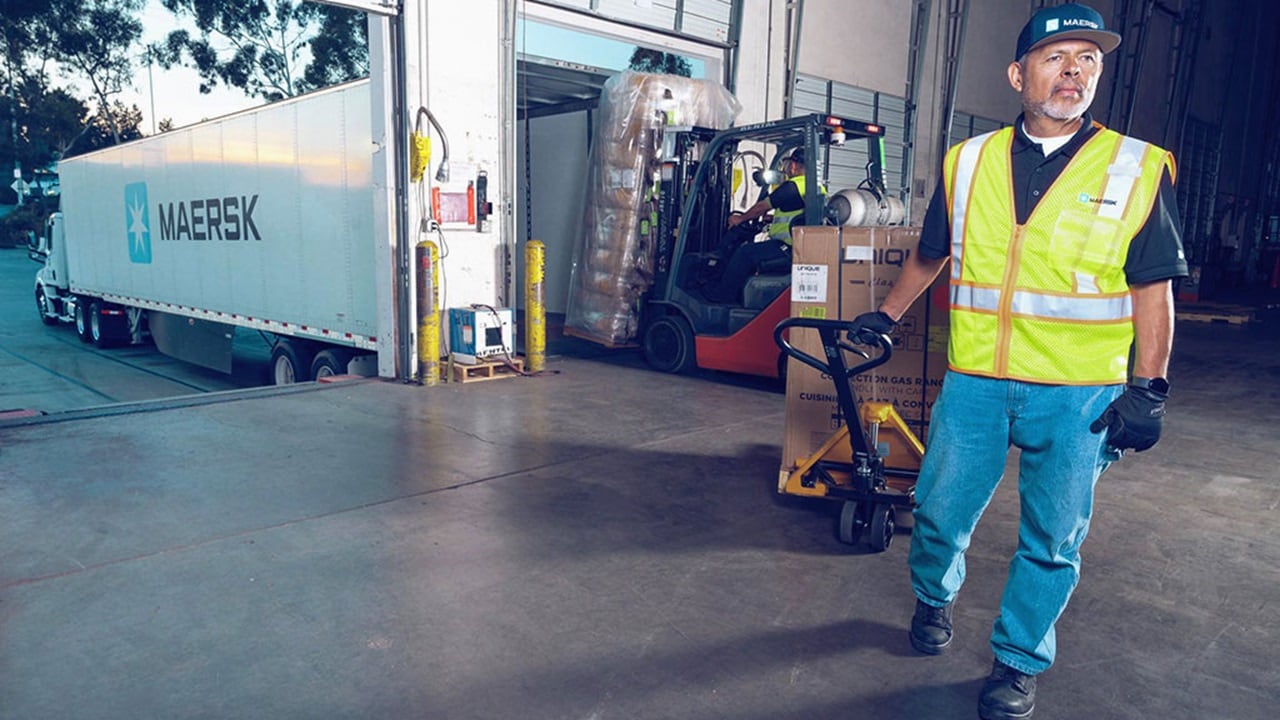Haulage refers to the transportation of goods by road or rail from one location to another, such as from a port to an inland warehouse or factory. It is a key part of the logistics process, ensuring that goods move efficiently from the point of import or export to their final destination.
Especially for small businesses managing their own supply chains, understanding the difference between merchant haulage and carrier haulage is crucial. Choosing the right option impacts not only your transport costs but also your control over operations and overall supply chain efficiency. In this article, we’ll explain both types of haulage, their differences, and what you need to know before deciding which one is right for your business.
Two key differences between merchant and carrier haulage
The main differences between the two relate to:
- Who is responsible for arranging inland transport from the moment your cargo arrives at port to the moment it’s delivered to your destination – or the other way around, from your inland location to an ocean port.
- How much control you have over the process.
Who is responsible?
In merchant haulage, the company (you, the merchant) is responsible for organising inland transport. This means you hire a third-party haulage company to move your goods from the port to your inland location, such as a warehouse or distribution centre, or from your inland location to the ocean port.
In carrier haulage, the shipping line (the carrier that brings your cargo by sea) arranges the inland transport as part of their service. The carrier is responsible for moving the container from the port to your chosen inland destination, using their own logistics network, or from your inland location to the port when exporting.
How much control do you have?
Merchant haulage and carrier haulage also differ in the levels of control they offer.
Carrier haulage simplifies the process since the carrier manages everything from the port to your inland destination (or the other way around). This means that if there are any port delays, carriers can coordinate your inland transport based on the current situation. This can save you time and let you focus on other areas of your business. With carrier haulage, you can address any seasonal considerations and volume fluctuations you may have throughout the year, as carriers can adjust inland capacity accordingly. You also gain access to multiple modes of transport, such as road, rail, and barge, depending on local service availability.
On the other hand, merchant haulage gives you more control over selecting your transport provider and routes, but also requires more coordination on your part – you’ll need to manage contracts with hauliers and ensure they meet delivery schedules.

Looking to transport cargo from one inland destination to another? Explore our Intermodal Transportation services to find out how we can take your cargo to any part of the world.
Examples of merchant vs carrier haulage
Let’s say you’re importing goods through the Port of Rotterdam in the Netherlands and need to transport them to your warehouse in Düsseldorf, Germany.
If you opt for merchant haulage, you would contract a local haulage company to move the goods inland. You can choose a haulier that offers competitive rates, or specific delivery times. However, you would need to coordinate with both the port and the haulier, making sure everything runs smoothly, especially if there are any disruptions at the port.
On the other hand, if you choose carrier haulage, the shipping line that brought your goods from overseas would also handle the transportation to Düsseldorf. This simplifies the process since the shipping line takes responsibility from sea to warehouse.
How to decide between merchant and carrier haulage?
The decision between merchant and carrier haulage doesn’t just affect transport — it has a ripple effect throughout your supply chain:
- Cost management: If you have the scale and resources to negotiate contracts and handle logistics, merchant haulage could sometimes save you money. However, carrier haulage provides convenience and efficiency, which should also be considered when evaluating your total logistics costs.
- Operational control: With merchant haulage, you will coordinate routes and times directly with haulage companies. However, it requires more resources for management effort and operational oversight.
- Risk and reliability: Carrier haulage offers more service predictability and connectivity with ocean transport, which is particularly useful for businesses looking for an integrated experience. On the other hand, merchant haulage could provide more customised tracking capabilities of the trucking move itself.
- Time and resources: For small businesses with limited logistics experience, carrier haulage offers a simpler, more hands-off solution, freeing up internal resources for other tasks. For bigger companies with dedicated supply chain resources, merchant haulage can lead to better optimisations but requires more in-house expertise.
For small businesses, deciding between merchant and carrier haulage depends on your priorities. If you value simplicity and efficiency and want to minimise the logistics management burden, carrier haulage might be the right choice. If you prefer to have direct contact with hauliers and have the resources to procure and manage multiple service providers, then merchant haulage may be a better fit.
How to book carrier haulage
Your cargo’s journey rarely begins or ends at port, which make the inland legs of its journey equally as important as the ocean part. Choosing the right logistics partner for your inland transportation needs can enable you to seamlessly connect your cargo from the ocean terminals to your inland location – be it a warehouse, store door, container freight station, or any other place where your cargo is needed.
With years of experience in intermodal transportation, Maersk can support customers with both Carrier Haulage and Multi Carrier options, irrespective of the carrier deployed for ocean transportation. Find out more about our Intermodal Transportation services, or get in touch with our experts to find a solution that best fits your needs.
注册订阅物流时事通讯
接收新闻和见解,帮助您驾驭供应链,了解行业趋势,并制定物流战略。
感谢您注册
发生意外错误
很抱歉,我们无法完成您的新闻通讯订阅注册。












